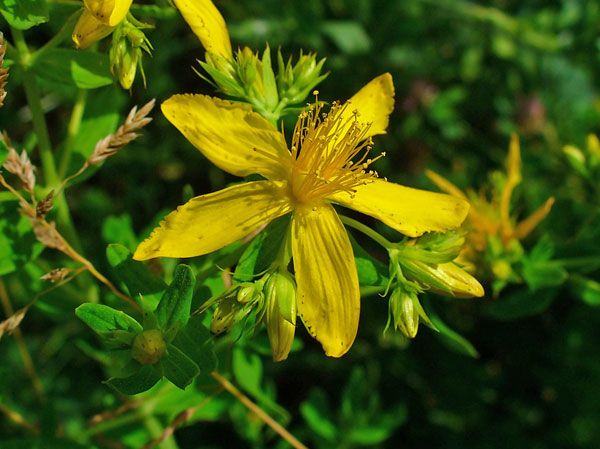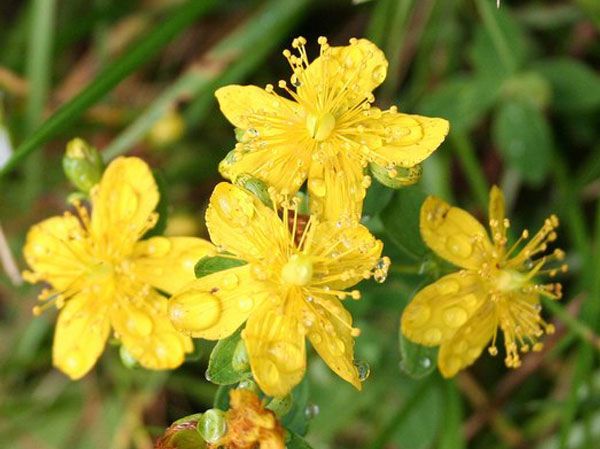St. John's Wort
What is St. John’s Wort?
St. John’s wort is also known as common St. John's wort (to differentiate the plant from the genus), Chase-devil, Tipton's Weed or Klamath weed, and is native to Africa, Europe, and the Asian continent, although the genus Hypericum has 370 species and is grown worldwide. In the United States, this plant is often considered a weed. St. John's wort is a flowering plant with five bright yellow petals and noticeable black dots. It has striations lining the petals, giving them a textured appearance, and long, filament-like strands fanning out from the center of the petals, creating a starburst-like effect.
Fun Fact: This plant was named St. John's wort because traditionally it flowered and was harvested on St. John's day (June 24th).
What are the benefits of St. John's wort?
Stress & Anxiety
St. John's wort is widely recognized as an herbal treatment for depression. Numerous studies report that St. John's wort is effective in the short-term treatment of mild-to-moderate major depression (1-3 months). This herb is known to reduce the symptoms of some types of depression. Hyperforin, an active compound in this herb, is believed to play a role in the mood-enhancing effects of St. John’s wort. Some studies show that St. John's wort may help reduce symptoms of anxiety. By modulating neurotransmitters and receptors in the brain, it may contribute to a calming effect and promote relaxation.Nervous System
This herb may possess analgesic properties and could potentially provide relief for nerve-related pain, such as neuropathic pain. Its mechanisms of action may involve modulating neurotransmitters involved in pain signaling, as well as possessing anti-inflammatory effects.
Note: St. John's wort can cause serious interactions with certain prescription drugs, other herbs, or supplements. Therefore, people using any medications should consult their healthcare provider before beginning this herb.
How does St. John's Wort work?
The active ingredients in St. John's wort are thought to work by increasing the levels of certain neurotransmitters in the brain, such as serotonin, norepinephrine, and dopamine. These neurotransmitters play a role in mood, sleep, and pain perception.

One way that St. John's wort is thought to work is by inhibiting the reuptake of serotonin, a neurotransmitter that plays a role in mood regulation. This means that more serotonin is available to bind to receptors in the brain, which can lead to improved mood. St. John's wort also contains compounds that inhibit the reuptake of norepinephrine, another neurotransmitter that plays a role in mood regulation. This can also lead to improved mood.
In addition, St. John's wort may also increase dopamine levels, a neurotransmitter that plays a role in motivation, movement, and pleasure. This may be beneficial for people with depression, as dopamine is thought to play a role in mood regulation. Finally, St. John's wort may also activate the PPAR-alpha receptor, a protein that plays a role in regulating gene expression. This may lead to changes in the production of neurotransmitters and other molecules that affect mood.
Native Remedies recommends you consult your doctor before introducing new herbal products into your regimen. Always ensure you are buying high-quality, laboratory-tested supplements from a reputable supplier. At Native Remedies, we back all our products with a 100 percent money-back guarantee. If you’re not happy with your purchase after trying it for 30 days, simply send it back for a refund. Here’s to your good health!
The content provided is for informational purposes only. It is not a substitute for professional medical advice. If you have a health condition, please consult a medical professional and do not use this information to self-diagnose or self-treat.
Depression | Anxiety | Restless Leg Syndrome (RLS)
Resources:

